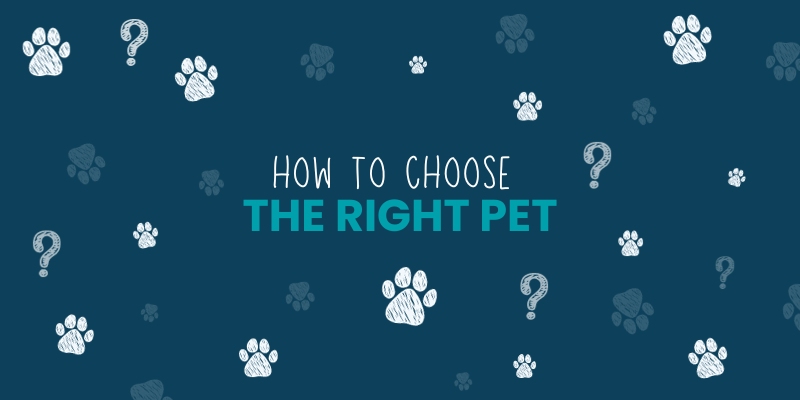Opening Hours: Mon-Fri: 8AM-8PM. Sat-Sun: 9AM-5PM. Public Holidays: 9AM-5PM.
info@germanvet.ae | 025562024

Choosing the right pet for yourself and your family is hugely important, as it will affect your day-to-day life and routine.
Dogs can be a little more time-intensive, as they need to be walked and receive mental stimulation every day, plus need baths and to be groomed and have their teeth brushed or ears cleaned.
Cats are a little less time-intensive but will also need daily attention in the form of playing and perhaps brushing, cleaning the litter box, and making sure that their physical and emotional needs are met.
Other pets such as small mammals (rabbits, guinea pigs, hamsters) and reptiles don’t need as much one-on-one interaction, however, rabbits can be very sociable and you will need time to clean out their enclosures and prepare fresh food for them.
Once you have agreed upon the right species, you will need to consider the breed or mix of breeds. Large dog breeds will need more space and exercise, whereas smaller dogs may be more suited to an apartment.
Some species of cat such as the Arabian Mau may demand outdoor space and being able to go out, whilst longer haired cat breeds such as Persian cats or Rag Doll cats may be more suited to an indoor-only lifestyle.
At GVC we strongly believe that adopting a pet has many benefits over buying.
There are a huge number of pets in need of good homes, and many are living in less-than-ideal circumstances whilst they wait for their forever homes. Many have arrived in this situation through sad circumstances.
Pets for adoption have usually had a full health check and have received vaccinations, de-worming and sometimes even been microchipped and neutered before they are adopted out.
Pets for adoption have been character assessed, which means that you are much likely to find your perfect furry partner – one that will be suited to your lifestyle and your family.
Adopting a pet is the moral and ethical choice to stop or reduce the breeding of pets in large breeding operations – sometimes known as puppy and kitten mills or farms, where puppies and kittens are often taken away from their mothers too early and not cared for properly, exposing them to illnesses and diseases and behavioural issues in later life.
GVC was established by Dr Katrin in 2008 and was the very first veterinary clinic in Khalifa City A. We have known many of our clients and patients for close to 10 years and have always held the reputation of being a top quality, dependable and caring service provider.
LINKS

© 2024 German Veterinary Clinic. All rights reserved.
Message Us